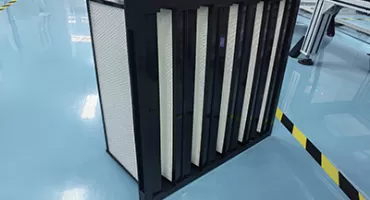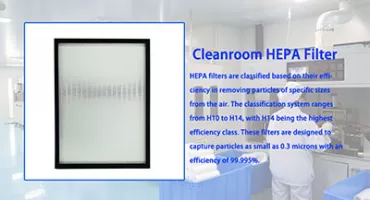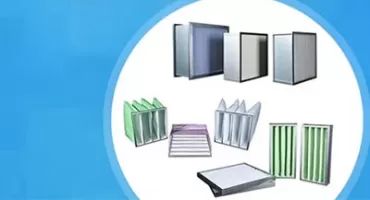 August 21, 2023
August 21, 2023
Do you know the range of applications for air filters? In the following, we will mainly introduce knowledge in this area, hoping that through our introduction, it can provide some assistance to everyone.
With the increasing severity of environmental pollution and the strengthening of environmental awareness, air quality has become a global focus. People now recognize that air filtration systems are not only meant to protect mechanical equipment but also to protect human health. As a result, the application scope of air filters has been expanding.
One major application of air filters is in residential buildings, followed by commercial and industrial constructions. Additionally, filtration devices are commonly used in the following scenarios: clean rooms, photocopiers, indoor air purifiers, anesthesia gas filtration equipment, laser surgical applications, HVAC systems (heating, ventilation, and air conditioning systems), controlled environments, computer printers, studio air filtration systems, air conditioners, and more.
The rapid development of air filters is closely related to the advancements in military and electronic industries. With the emergence of new testing methods, improved performance evaluation, and higher requirements for filtration efficiency, the design of filters has also made significant progress. An important development is the removal of baffles, leading to the development of baffle-less filters. Baffle-less filters not only control the risk of baffle damage to the filtering medium but also effectively increase the filtration area, enhance filtration efficiency, reduce airflow resistance, and lower energy consumption. Furthermore, air filters have made significant progress in terms of high-temperature resistance, corrosion resistance, antimicrobial properties, and other aspects to meet specific demands.
1. Application of Air Filters in the Food Industry
The food industry is becoming an expanding market for air filtration equipment. Methods using disinfection to control pollution for maintaining the freshness of food are gradually being phased out. This makes controlling air pollution related to products more important. Government regulations, insurance awareness, and public concerns have prompted meat processors, dairy producers, and other food manufacturers to upgrade their air filtration systems. In Europe, yogurt packaging takes place in clean rooms, involving the addition of expensive chemical preservatives to extend product shelf life. Breweries, in order to protect draft beer, must control the air pollution around the filling area. Clean room filling is a good option. Such facilities require clean rooms with a cleanliness level of 100,000, utilizing top ventilation systems with HEPA filters.
2. Application of Air Filters in Office Buildings
The driving force behind the need to improve indoor air quality in office spaces is the usage of office equipment. Computer terminals are sources of ozone and volatile organic compounds. Inkjet printers emit hydrocarbons and ozone. Dry process photocopiers emit hydrocarbons, inhalable suspended particles, and ozone. Fax machines produce ozone and volatile organic compounds. Laser printers emit hydrocarbons, ozone, and inhalable particles. These emissions seriously pollute the indoor environment, posing risks to human health and office equipment. It's estimated that 30% of office buildings and public structures in the United States have indoor air pollution issues, particularly public spaces like airports and stations facing greater challenges compared to office buildings.
The above provides some insights into the application of air filters in the food industry and in office buildings. We hope that our introduction can offer some assistance to everyone.
 Oct. 09, 2023
H10 V-Bank HEPA Filter
Oct. 09, 2023
H10 V-Bank HEPA Filter
 Apr. 19, 2024
Understanding Cleanroom Filters: The Cornerstone of Controlled Environments
Apr. 19, 2024
Understanding Cleanroom Filters: The Cornerstone of Controlled Environments
 Aug. 17, 2023
Understanding the 5 Basic Requirements of Air Filters
Aug. 17, 2023
Understanding the 5 Basic Requirements of Air Filters

